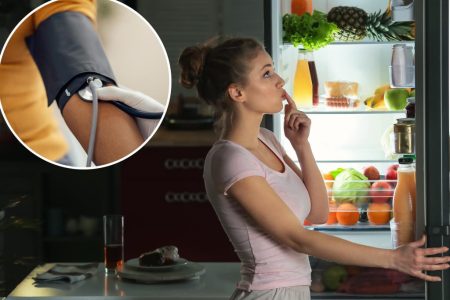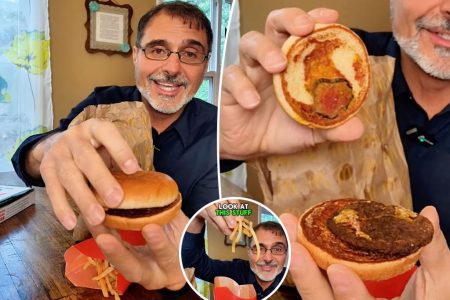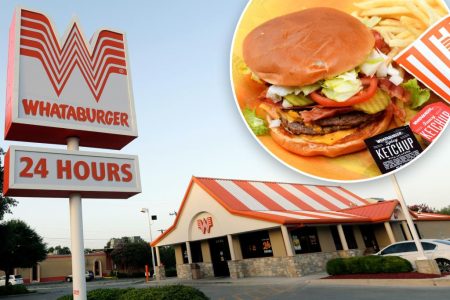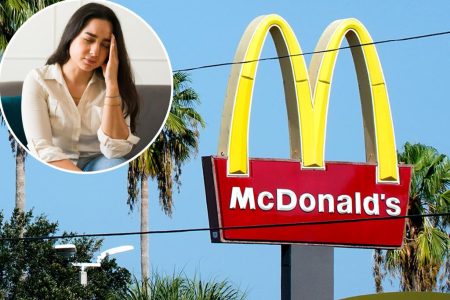Summarize this content to 2000 words in 6 paragraphs
He’s lived a full life.
Takeru Kobayashi, Japan’s legendary competitive eater and one-time rival hot dog king Joey Chestnut is dishing on their highly anticipated rematch — and what retirement has been like since throwing the napkin on the table in 2010.
The rivalrous duo, who went head to head for several Fourth of July Nathan’s Hot Dog Eating Contests on Coney Island in the mid-2000s, will appear in a Netflix special entitled “Chestnut vs. Kobayashi: Unfinished Beef.”
It debuts live on September 2 in the wake of Chestnut’s ban from Major League Eating over sponsorships.
Kobayashi departed the organization in 2010 during a contract dispute.
This year’s contest winner Pat Bertoletti of Chicago jammed down 58 hot dogs in ten minutes, which is nothing to scoff at. However, it comes nowhere near Chestnut’s world record of 76 — nor Kobayashi’s personal best of 69.
“I never had a retirement match,” six-time champion Kobayashi and Kyoto resident, now 46 years old and weighing 150 pounds, told the Guardian from his Kyoto home, adding that eating over the years began “to lose the magic.”
“I did feel like: is this all there is? It just ends like this? And is that OK? Whether the timing is right for me or not, I did feel like this chance will never come again.”
But as fate would have it, the duo — whose rivalry was manufactured, a la pro-wrestling — are back for seconds and Kobayashi is hungry for some redemption.
“Unless I think each match is my last one, I will not be able to perform at my peak level,” he said. “This has really brought back the feeling of how much fun it is to push yourself.”
But there is a price to pay when pushing so hard.
“I’m putting a lot of stress on my body, like any competitor in any sport,” he said.
“There’s always a lot of damage done to your body. I know of three of my peers who are competitive eaters who have passed away between the ages of 20 and 50. So it is something that concerns me.”
Additionally, there is another grave matter that the average fan doesn’t think of when it comes to chowing down en masse.
“I was always aware of the risk that I could get cancer of the digestive system, whether it’s my stomach or my throat,” said daredevil Kobayashi.
“That’s part of the attraction of this sport, I believe: to always be close to danger or to death. I never focused on the negative aspects, because once you do that you step on the brakes and don’t try to test your limits.”
It takes guts
Making it into the elite upper echelons of competitive eaters mainly takes willpower, according to Kobayashi.
“I think a lot of my fellow food fighters would say that it’s about 90% genetics or inherent talent,” he said.
“But I believe it’s more like 50% genes and 50% personal effort.”
And, there’s plenty of agony off-camera.
“Right after the match ends is the hardest; you are really suffering,” Kobayashi, once an economics student in Japan, added. “Also, because the race is over, you’re relieved, and that sense of relief also makes you feel like your stomach is very, very heavy.”
He recalls being thrown into a haze after matches and not being able to lie down because it puts pressure on the stomach. The time of dense struggle also coincides with when “you have to smile with your friends and the fans.”
“I don’t want to be in the spotlight any more. I don’t want to walk around and see a lot of people,” he recalled of time after competing.
Kobayashi has also felt lingering impacts from his days behind the table. He no longer feels hungry and has other neurological issues related to nausea around food. But that’s not all bad news.
“The benefit of not feeling hunger is that I’m better able to manage my diet,” he said. “I can determine my own schedule and my ritual of how much I eat at which time.”
Still, eating has become such a psychological burden, he said, that he will stay away from all-you-can-eat buffets or anything with the hint of a challenge. Typically, his diet now revolves around proteins like grilled chicken and yogurt.
“I’ve found that the best way to do this is by deliberately making it hard to eat, for example by eating with my left hand or using forks and knives to eat things that you would usually eat with chopsticks or hands.”
All that said, Kobayashi is sinking his teeth into the long-awaited rematch.
“I want everyone to look forward to this,” he told ESPN. “It will be live globally, and the world’s greatest will be determined. And it shall be me.”















